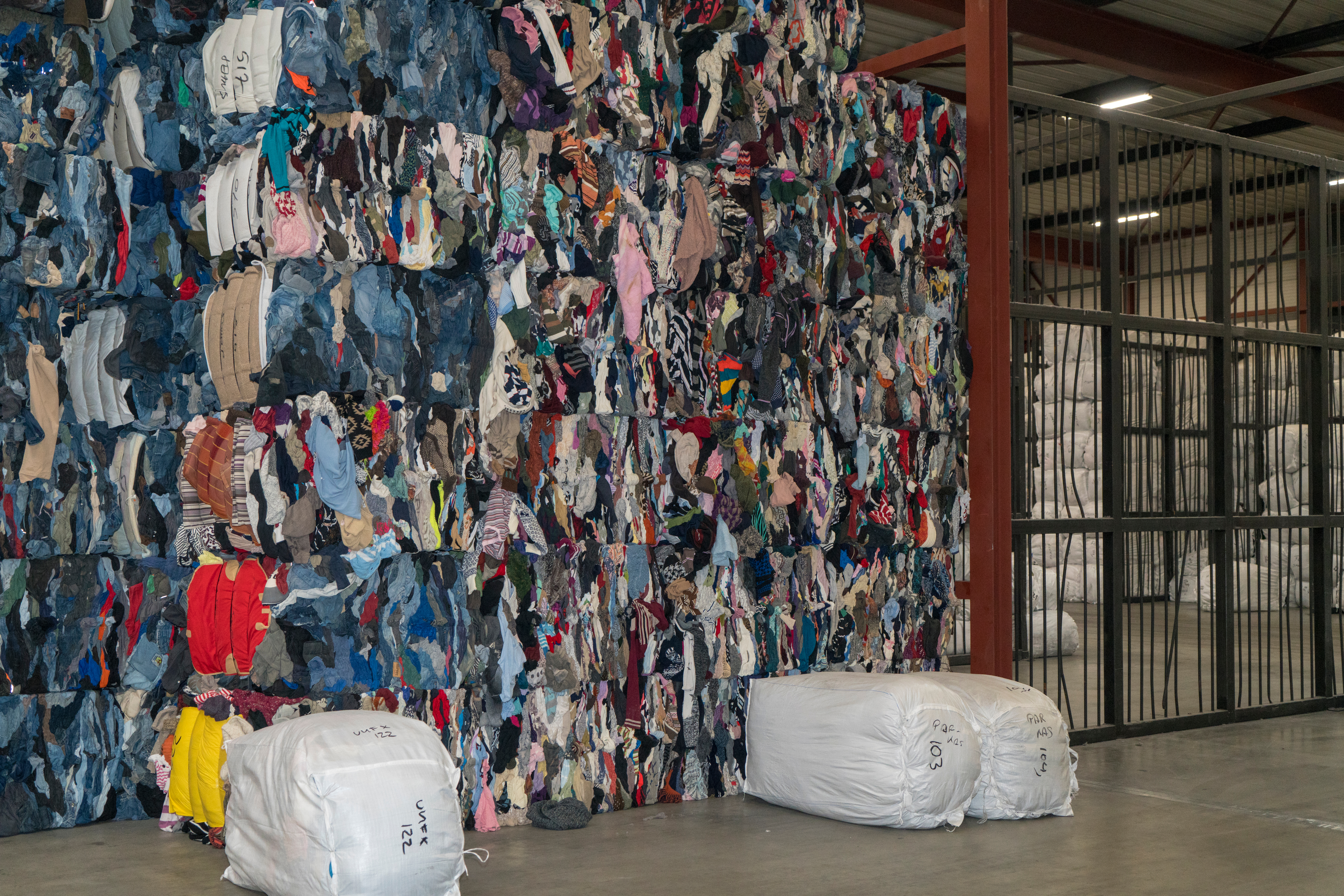Traders in used textiles across Europe are warning that the industry is experiencing an unprecedented crisis more significant than during the Covid-19 pandemic.
They say the sector is under immense pressure due to several global disruptions, including the war in Ukraine, logistical challenges in Africa, and the rise of ultra-fast fashion. The warning comes from the textiles branch of the European Recycling Industries’ Confederation (EuRIC) and Municipal Waste Europe (MWE), an association representing local authorities.
They are reporting an oversupply of used textiles and a sharp decline in demand from traditional export markets. The trade in used textiles between the EU and non-EU fell from 464 993 tonnes in 2022 to 430 185 tonnes in 2023. Meanwhile, demand for recycled materials remains low: recycled cotton had an estimated production volume globally of 319 000 tonnes in 2023 compared to 24.4 million tonnes of virgin cotton. EuRIC and MWE report that prices for sorted second-hand garments no longer cover processing costs.
Incentivise
‘We call on the EU to encourage Member States to lower VAT on textile repair, reuse, and recycling activities, within the existing VAT Directive framework, and explore the possibility of introducing a tax on new, petroleum-based materials,’ the pair urge. ‘Such measures, if adopted at national levels, would incentivise the use of recycled materials and reduce the environmental impact of virgin textile production.’
They warn of higherprocessing costs for municipalities with downstream players in the recycling chain, such as tearing and spinning mills, also feeling the strain, leading to significant staff cuts.
‘To avert widespread bankruptcies, immediate financial and legislative support is essential,’ EuRIC and MWE insist. ‘Short-term financial incentives for EU companies that contribute significantly to a sustainable circular textile chain are needed to safeguard the industry from collapsing.’
Revision
Urgent revision of the Waste Framework Directive (WFD) and rapid implementation of extended producer responsibility (EPR) schemes are also seen as imperative.
In the mid-term,they add, efforts should focus on making the textiles reuse and recycling sector competitive. The EU is urged to needs to increase demand for recycled textiles, expand recycling capacity, and promote the use of sustainable materials through eco-design requirements.
Finally, they call for the mandatory inclusion of a percentage of recycled textile content (most preferably from post-consumer textiles) in all new textile products placed on the EU market.
‘Without urgent action, Europe risks undermining its climate goals and jeopardising the future of its textile sorting and recycling industry.’
The joint appeal follows a recent conference on used textiles held by the Bureau of International Recycling which also warned of a dire situation in the industry.
Don't hesitate to contact us to share your input and ideas. Subscribe to the magazine or (free) newsletter.



